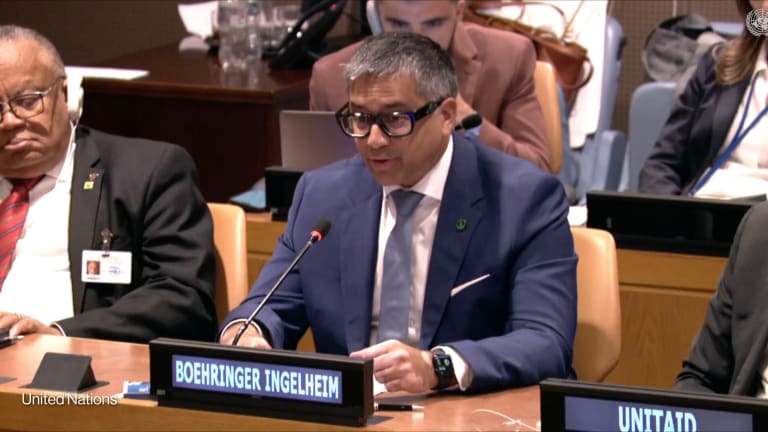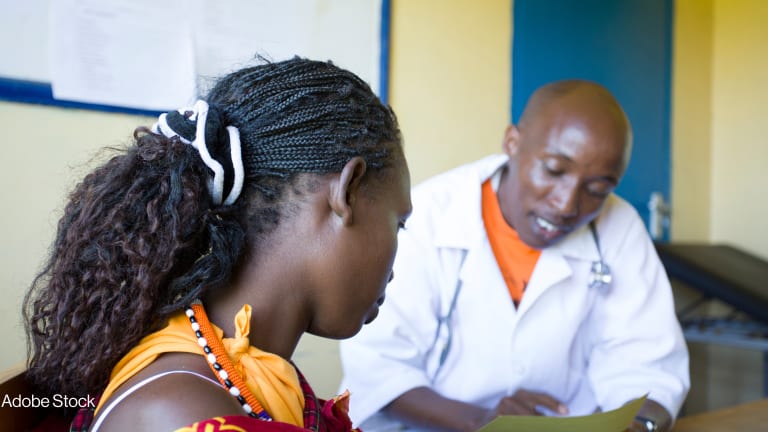
No one should question the sense of urgency with which elected officials and public health authorities acted as soon as cases of the Ebola virus were identified in Texas. All one has to do is see the suffering and tragic loss of life taking place in West Africa to realize how devastating it would be if a communicable disease as lethal as this one gained a foothold in the United States.
As I look at the strong measures taken to prevent the spread of Ebola, I do feel it would be remiss as a public health advocate and as someone who has raised my voice whenever possible about the destructive impact of chronic disease, if I didn’t point out the societal good to be gained if we brought this same urgency to containing noncommunicable illnesses.
To date, we have identified just a few individuals who contracted Ebola in this country. By contrast, as of 2012, the Centers for Disease Control and Prevention estimated more than 117 million people in the United States — roughly half of all adults — had at least one noncommunicable disease such as cancer, heart disease, diabetes or arthritis. While these illnesses may not attack the human body as rapidly as many communicable viruses, there is no question that they are deadly.
Heart disease and cancer are responsible for a little less than half of all deaths in the United States, and diabetes is notorious when it comes to shortening life spans while causing suffering via kidney failure, loss of limbs and blindness. According to the CDC, one out of every three of our next generations of Americans will have diabetes by 2050.
The frustration here is that the death and disability resulting from chronic disease, not to mention the hundreds of billions of dollars spent to treat chronic disease (more than 83 cents of every health care dollar spent in the United States) do not have to be viewed as unavoidable or inevitable status quo. Just as we can take bold steps to prevent contagions, we can also act decisively and innovatively to curb those diseases that are not communicable.
For example: It’s time to treat obesity as the national health crisis that it is. First Lady Michelle Obama deserves a good deal of credit for her work in this regard, particularly in teaching children the value of exercise and healthy nutritional choices. But there is so much more that can be done. In Oklahoma City, city officials decided they would no longer accept being labeled, as one magazine did, as “the fattest city in America,” and launched a community-wide effort to successfully lose more than a million cumulative pounds and become one of the fittest cities in America. I believe subsequent studies will no doubt show that Oklahoma City’s diabetes and heart disease rates, and its health care costs, declined as well. This kind of effort can and should be replicated throughout our country.
We need creative public policymaking and a willingness to embrace ideas that work. In Medicare, the U.S. government’s health insurance program for seniors, for example, two-thirds of the beneficiaries have multiple chronic diseases — many related to obesity. Medicare, however, has established very narrow parameters in the therapies it will cover to help people achieve a healthier weight. Proven measures like pharmacologic treatments and behavioral therapies are either extremely limited or not available at all to an over-65 population that would generate lower health care costs with a moderate investment now in helping them overcome obesity.
Also, on the public policy front, we need to stop battling over microissues when our health care system, and our society, is facing macrochallenges. Imagine what we could achieve if the energy devoted to skirmishes over a balky healthcare.gov website and whether or not “death panels” actually exist was devoted instead to determining how to invest in better, innovative therapies and cures for cancer, Alzheimer’s disease and diabetes.
Yes, I am passionate about these issues because I see firsthand the toll noncommunicable diseases are taking on patients, and I know enough about the trajectory rate of these illnesses to understand that our society is in serious trouble if we don’t take action soon. Our nation shows, in the midst of a potential crisis like Ebola, how rapidly and powerfully it can mobilize. I think we need to do it for a crisis that is already here.
Want to learn more? Check out the Healthy Means campaign site and tweet us using #HealthyMeans.
Healthy Means is an online conversation hosted by Devex in partnership with Concern Worldwide, Gavi, GlaxoSmithKline, International Federation of Pharmaceutical Manufacturers & Associations, International Federation of Red Cross and Red Crescent Societies, Johnson & Johnson and the United Nations Population Fund to showcase new ideas and ways we can work together to expand health care and live better lives.
Search for articles
Most Read
- 1
- 2
- 3
- 4
- 5








